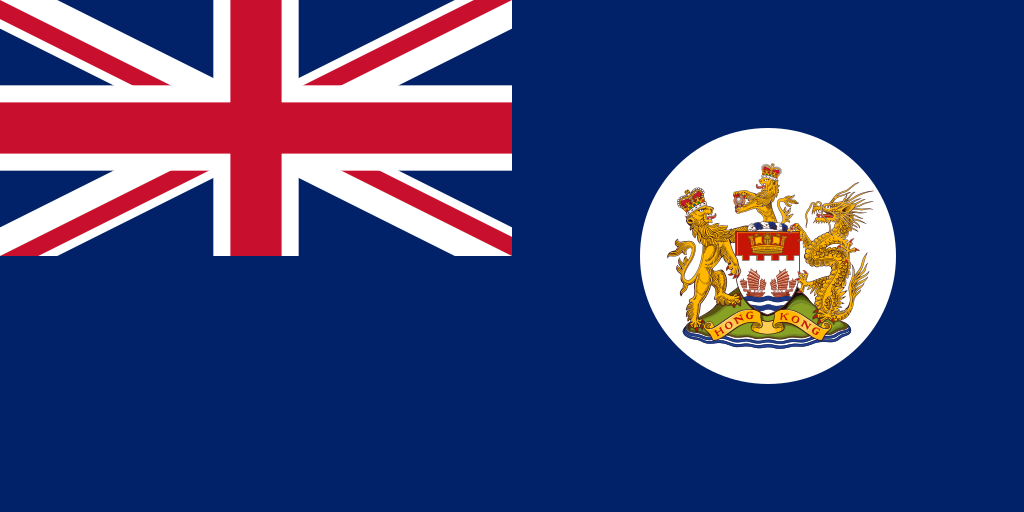Some people may consider that this flag is simple and others that is unattractive. However it represents and important historical event, since this was the flag of Hong Kong before the sovereignity over the region was given to China, marking the reincorporation of this territory and the official end of the British Empire. All the positive and negative actions of the British Empire, finished that day of 1997 when this flag was replaced. At the time, there wer hopes that Hong Kong culture and freedom would spread elements of its way of being to the rest of China, but that hadn't happen, and now China controls the city, treatening to pull back most of its advances of freedom on the incoming years. The former British Empire is limited on what it could do about this, yet this flag remains as a symbol, a reminder and, just maybe, a hope that Hong Kong won't totally fall under China's full control.
Image of Public Domain.


